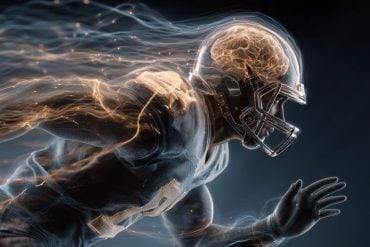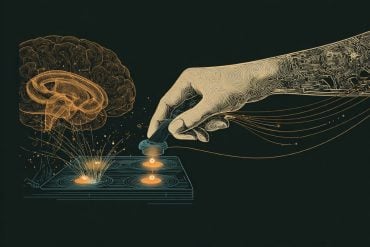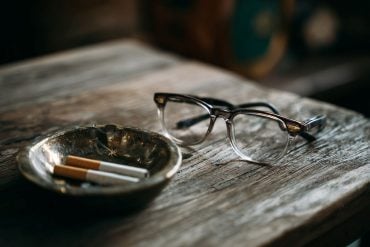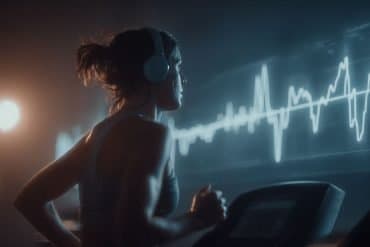Summary: Researchers study the positive effects icaros, a type of traditional Peruvian music, in combination with psychotherapy and the psychedelic drug Ayahuasca has on treating addiction.
Source: UCR
In Perú, music heals more than the soul.
Traditional songs, known as icaros, are part of a treatment process for men rehabilitating from drug and alcohol addictions. Combined with traditional Amazonian medicine and psychotherapy, these icaros are used during ayahuasca healing ceremonies at the Takiwasi Center for Drug Addiction Rehabilitation and Research on Traditional Medicines in Tarapoto, Perú.
For the first time in the center’s 30-year history, a University of California, Riverside music researcher has captured the positive impact icaros play in men’s recovery. Ayahuasca, a plant-based psychedelic, means “vine of the dead” in Quechua, Perú’s primary Indigenous language.
The findings of the study, led by UCR doctoral ethnomusicology student Owain J. Graham, were published in the journal Anthropology of Consciousness. Graham said the topic of his research needs to be further explored and the role of music as a therapeutic tool better understood so that music can be more effectively integrated in healing treatment options for patients in the United States, and potentially globally, suffering from addictions and other illnesses.
About 67% of participants who completed a nine-to-12-month program at Takiwasi Center, did not return to substance abuse, according to previous research cited by Graham and his colleagues. About 86% of patients showed statistically significant improvements on the Addictions Severity Index, an assessment tool used to evaluate substance abuse treatment.
An analysis from 2017–19 assessed 180 responses. All patients reported that icaros changed their psycho-emotional state and that icaros effected healing related to “unblocking,” a process also known as “cleansing” and “removing,” referring to reports of ayahuasca’s purgative effects, both physical and psycho-emotional.
“Ethnomusicologists and medical anthropologists understand the role that music plays in healing among many cultures,” said Graham, whose research interests include indigeneity and ritual music in South America.
“While Western biomedicine’s foundation in science is strong, it has also neglected to explain the connection of mind-body and how music can effect healing.”
The Takiwasi Center only hosts men in its on-site residential program. It focuses on men’s health because in Perú and around the world most substance addicts are men, not women.
Respecting the guidance of Amazonian healers, the program also requires complete focus, including sexual abstinence, which is why it does not allow women to live within the community of rehabilitation patients. Women do receive treatment and are allowed to participate in the center’s healing ceremonies.
Over decades, the use of ayahuasca has garnered greater global attention, but in the upper Peruvian Amazon region, this has been an ancient cultural practice, Graham said. At the Takiwasi Center, the combination of monitored psychedelic-assisted psychotherapy—along with icaros sung in Spanish, Quechua, other Amazonian Indigenous languages, and sometimes French—help men shift away from drugs. Through his research, Graham understood that illnesses are not just physical ailments, but also derive from social and spiritual issues.
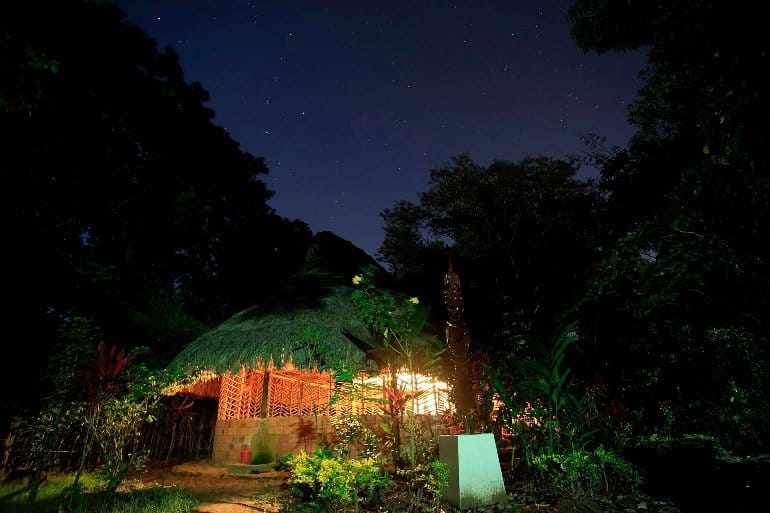
For more than a decade Graham had been interested in understanding the relationship between music and altered states of consciousness, focusing on cultures who have long-standing traditions of using the two together. He soon realized that recent clinical studies on psychedelics had a major component missing from their reports: sufficient focus on the use of music in their protocols.
“I got to thinking, ‘Maybe I can add something to this conversation. Maybe I can help add some context and hopefully amplify the perspectives of traditional healers using these medicines/substances.’ The healers inherited practices going back hundreds of years to their ancestors,” Graham said.
Patients at the Takiwasi Center—a space Graham visited during several months at a time in 2019 and 2022—partake in six-hour ayahuasca ceremonies guided by traditional healers. The healers guide participants with icaros, the music emotionally and mentally transitioning them from one stage to another.
Responses and experiences did not vary when it came to a participant’s culture and demographic background. Graham’s sample included 58% South American and 42% Western European men.
Are icaros and ayahuasca healing ceremonies enough to completely change a person’s substance abuse? Graham warns against literal interpretations and unrealistic expectations. Traditional healing takes time, which is why Takiwasi’s program is nine to 12 months long. Also, during this period participants have time to integrate lessons and process the trauma that is brought up by ayahuasca ceremonies, Graham said.
“I would caution people in both directions. A lot of people have been hearing more about ayahuasca in the past 10–15 years. Some claim they were reborn, with some major trauma healed after one ayahuasca session. That can happen, but that is not the normal case,” Graham said.
“What’s important to note is that there needs to be more collaboration between researchers across disciplinary lines. Clinical researchers should be thinking of more traditional uses as they create therapies in hospital-type environments.”
About this addiction, music, and psychopharmacology research news
Author: Sandra Baltazar Martínez
Source: UCR
Contact: Sandra Baltazar Martínez – UCR
Image: The image is credited to Takiwasi Center
Original Research: Open access.
“Experiences of Listening to Icaros during Ayahuasca Ceremonies at Centro Takiwasi : An Interpretive Phenomenological Analysis” by Owain J. Graham et al. Anthropology of Consciousness
Abstract
Experiences of Listening to Icaros during Ayahuasca Ceremonies at Centro Takiwasi : An Interpretive Phenomenological Analysis
Research on psychedelic-assisted psychotherapy has shown that music affects therapeutic outcomes at a fundamental level. The development of such therapies calls for research on the use of music with consciousness-altering substances, especially in contexts informed by their traditional use.
Informed by ethnographic reports, our project answers this call, investigating the phenomenology of listening to icaros (medicine songs) during ayahuasca ceremonies as reported by addiction rehabilitation patients at Perú’s Centro Takiwasi. We found that icaros were therapeutically significant.
They elicited experiences of healing by modulating patients’ emotions and the altered state induced by ayahuasca. They helped patients feel safe while guiding them through difficult memories and emotions, and facilitating experiences of healing and learning about their addictions. Thus, similar therapies must carefully consider how they incorporate music in their protocols.
We suggest further research to better understand the synergistic, therapeutic effects of music and altered states of consciousness, especially in cross-cultural environments.




